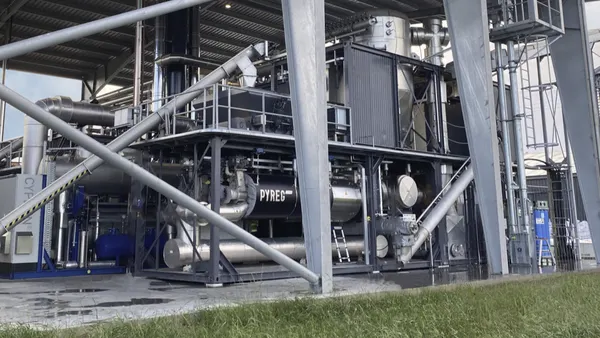Q1 Earnings
| Revenue | $458M |
| Adjusted EBITDA | $100M |
| YoY Change | $49M▲ |
Coming off what CEO Stephen Jones called "a very successful quarter," Covanta and the analysts that track it appear increasingly confident about the company's prospects for 2018.
Highlights:
- Having the Fairfax, VA plant fully up and running after nearly a year of post-fire downtime was a key reason for the company's positive quarter. During the earnings call, Jones described the facility as "running at record levels" and "achieving the highest quarterly power generation in its history."
- This contributed $24 million, including insurance payments, to a $49 million YoY increase in adjusted EBITDA. Fairfax could potentially look even better in future quarters if the company can reclaim some of the more lucrative profiled waste volumes displaced during its closure.
- The company's Dublin, Ireland facility was also a driver of these results, bringing in $13 million of revenue and processing close to 160,000 tons of material during the quarter. Covanta formally closed a deal in February that gave the Green Investment Group a 50% stake in the facility.
After an eventful 2017, with the Fairfax fire and Dublin commissioning, Covanta now appears to be on steadier ground. During this first quarter, Covanta processed more tons of waste at higher prices and recovered higher volumes of metals on the back-end.
While energy revenue was up by 16%, that's largely attributed to Fairfax, and the company is working to reduce its exposure to market prices in the years ahead. As recently noted by MarketWatch, Covanta's stock prices do track more closely with energy companies than waste management companies, though the majority of its revenue is still derived from waste rather than energy sales.
This has made finding ways to increase the percentage of more profitable "profiled" material, rather than traditional MSW, a priority. Examples include a recently announced five-year contract with the New York Department of Environmental Conservation for a pharmaceutical take-back program. Covanta has projected profiled waste revenue could increase by double-digits in 2018, and lead to an overall 3% growth in pricing, but also recognized that was off to a slower start than expected.
New Projects:
Announcements about recent or upcoming developments show potential to increase activity for both profiled and traditional MSW streams.
- Covanta announced the recent completion of a material processing facility for profiled waste near its Indianapolis WTE facility. The company also received its third permit to process regulated medical waste at an unnamed facility.
- New York's Department of Sanitation has given official notice to proceed on preparing the 91st Street Marine Station — one of two sites that Covanta has under a 20-year contract — to begin operations by March 2019. Covanta expects to spend around $35 million on transportation equipment for this facility.
- The company has also received permit approval in Pennyslvania to move forward on its first "total ash processing system" (TAPS) that will boost recovery rates and direct material to aggregate uses. The goal is to have this operational by Q1 of 2019.
Question Marks:
Here are a few variables that were mentioned to keep an eye on in the months ahead.
- The upcoming Rookery project has received permit approval in the U.K., but a local environmental group recently filed a challenge claim. While Jones projected this could delay the process by anywhere from a few weeks to a few months, he said "We don't think the claim has any merit. And I think it will fail. And so in the meantime, we'll be continuing to develop the project."
- U.S. tariffs on Chinese steel and aluminum appear beneficial for the company right now, though they have caused some caution on projecting commodity prices for recovered metals. "While the initial impact of these developments has been positive, we have seen and could see more retaliatory activity out in China and other countries, which could reduce demand for some of our metals products," said Jones.
- Jones said the company was hesitant to take in any material displaced from China's import restrictions, such as mixed paper or plastics, though he expects this could eventually have an effect on an already favorable environment. "Our merchant plants and our transfer stations continue to be full, and so we're pushing spot prices," he said. I think the markets are pretty darn good right now. And the China situation is just adding more waste into the wasteshed."









